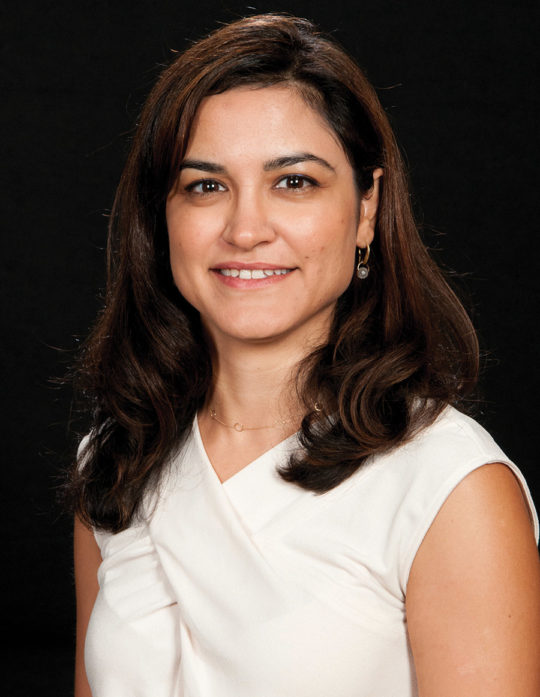Aysegul Gunduz, Ph.D.
Aysegul Gunduz, Ph.D.
Associate Professor & J. Crayton Pruitt Family Term Fellow
Herbert Wertheim College of Engineering
2019 Awardee
Aysegul Gunduz develops diagnostic and therapeutic tools that identify and characterize neurological disorders in human patients.
Specifically, her research uses invasive brain recordings from neurosurgical patient populations to develop closed-loop deep brain stimulation (DBS) systems.
Her research team is responsible for the study of precursors to behavior and the aftereffects of stimulation in neural networks to better understand their interaction. Gunduz aims to translate this knowledge into clinical diagnostic and therapeutic systems to improve the quality of life of those suffering from neurological and neuropsychiatric disorders.
“Although there have been huge strides in preclinical neuroscientific research in the last two decades, these advances are not resulting in corresponding gains for new treatments, diagnostics and prevention in humans,” Gunduz said.
Gunduz works directly with neurosurgical patients diagnosed with epilepsy and movement disorders, who receive electrode implants in their brains as part of their therapy. This clinical setting facilitates a rare access to the human brain and opens up unparalleled avenues for translation and patient interaction.
“Working with patients toward understanding and improving their condition is profoundly rewarding, and all the clinicians I work with are envious that me and my trainees get to do the fun stuff,” Gunduz said.
Gunduz has received the UF Provost’s Excellence Award for Assistant Professors, UF College of Engineering Khargonekar Junior Faculty Award for Excellence, the UF Preeminence Term Professorship, the UF Pruitt Family Endorsed Faculty Fellowship, the UF BME Faculty Research Excellence Award and the UF Graduate Education Diversity Champion Award. In addition, she served as the president of the UF Association for Academic Women, which strives to provide equal opportunities for tenure, promotion and advancement to leadership opportunities to female faculty, administrators and staff.
Her contributions to her field were also recognized with a Presidential Early Career Award for Scientists and Engineers (PECASE), a joint Early Career Award from the International Academy of Medical and Biological Engineering (IAMBE) and the International Federation of Medical and Biological Engineering (IFMBE), and an Anita Borg Institute Denice Denton Emerging Leader ABIE Award, in addition to her National Science Foundation CAREER Award. Her work was also highlighted by the NIH Director Francis Collins at the 2018 BRAIN Initiative PI Meeting.


